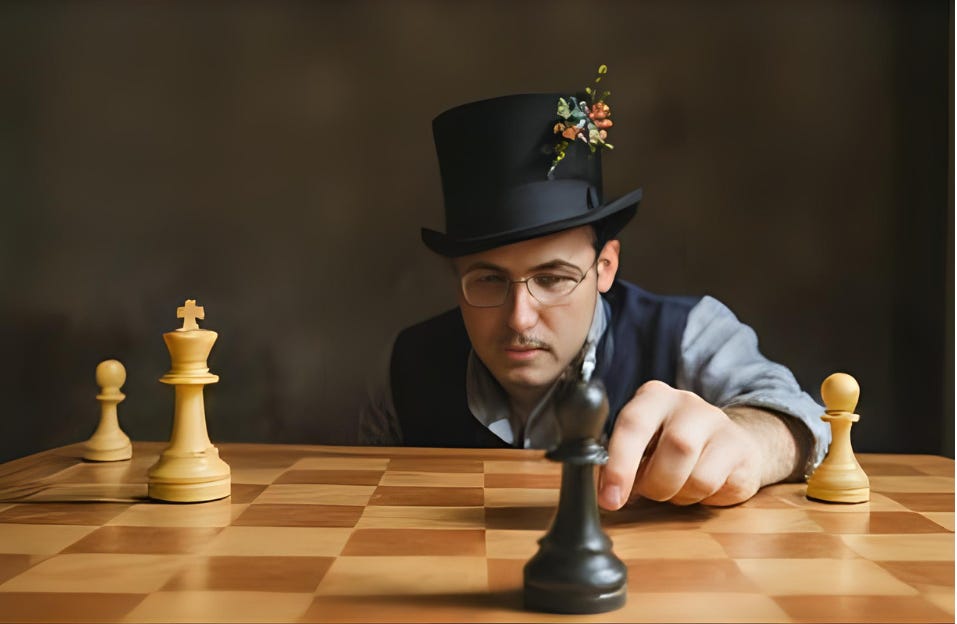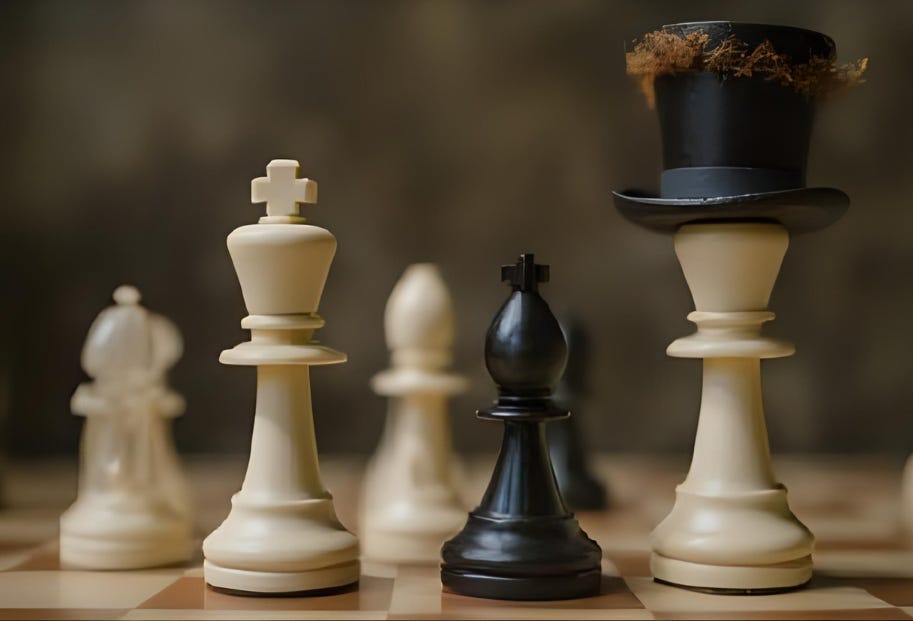Phaiku No. 12: Grand-less
The Mirrorless Game
Let’s first begin with a character sketch. It’s one that explores power, empathy, and neurodivergent perception. We’ll follow with the phaiku, Grand-less, and end with a vignette.
Character Dossier: The Mirrorless One
Alias: The Mirrorless One — a nickname whispered by others, although he has no clue why.
Age: Midlife, but carries a strangely timeless air.
Background:
Born into a household where nurture was a chore rather than a gift. His mother, bound to a role she resented, offered bread but not warmth. He learned early to quiet himself, thumb pressed between teeth, as though seeking comfort from his own body when none could be found outside it.
In adolescence, his genius blossomed: mathematics, patterns, riddles of the mind. Yet his brilliance came at a cost — he could not “read” the simplest riddle of another’s heart. To him, empathy was not resonance but translation: “If that were me, I would feel …” He mistook this for connection.
Traits:
Strengths: Blazing abstract intelligence; memory that holds whole worlds; a resilience forged from neglect.
Deficits: Cannot mirror others; all input must pass through the prism of self; emotions expressed as fragments or not at all.
Defenses: When accused, he bristles — not out of cruelty, but because the accusation threatens his fragile scaffolding of self.
Turning Point:
Two ruptures in his brain, one long unseen, the other repaired through the hollow of his nose. Afterward, he was changed. Softer. Less brittle. The sharp angles of his defensiveness dulled. He seemed mellowed, as though the storm had passed and left a gentler tide. Yet beneath, the deficits remained — connection still a puzzle unsolved.
Inner Tension:
Fantasies of roles that wield control — assassin, tyrant — roles where power flows clearly and social ambiguity vanishes. In games, he acts out darkness, harming innocence without pause — not because he is cruel, but because their pain does not register as real. Shadows become rehearsal halls for a control he lacks in life.
Yearns for closeness yet cannot grasp its form. To him, intimacy is a foreign tongue, every syllable refracted back through self.
Signature Paradox:
A mind that can solve galaxies but stumbles over human faces.
A genius untethered, brilliant yet impractical.
A man softened by rupture, but never remade.
Phaiku No. 12: Grand-less
black or white you choose
madman across the water
Grandmaster pretense
Vignette: The Chessboard Café
The café smelled of burned espresso and damp coats. He sat across the table, eyes narrowed at the chessboard between us, though he hadn’t moved a piece in several minutes.
“You look tired,” I said, testing the waters of ordinary concern.
He blinked once, then leaned back. “If I were tired, I’d just sleep. That’s what I’d do.” His tone was matter-of-fact, not unkind — but my words had passed through him like smoke through glass, transformed into a reflection of himself.
I tried again. “It’s been a hard week for me.”
His knight clattered against the board, abrupt. “When I had a hard week once, I imagined becoming an assassin.” His lips twitched, almost a smile, though there was nothing humorous in his eyes. “It’s easier to imagine being the one who causes endings than the one who suffers them.”
I hesitated, unsure whether to laugh, protest, or ask for more. He seemed to notice, though not in the way I hoped. He tilted his head, studying me like a puzzle. “You don’t get it. I’m not mean. It’s just a role. In a game, no one really feels anything.”
I remembered then — the aneurysm, the quiet after his storm. He was mellower now, gentler even. The old sharpness was gone. But still, there was no mirror in him, no surface that caught and returned another’s light. He was a window pane in shadow. Clear. Cold. Impenetrable.
He finally moved his knight. “Check.”
Is it empathy if all feeling is filtered through the self?






